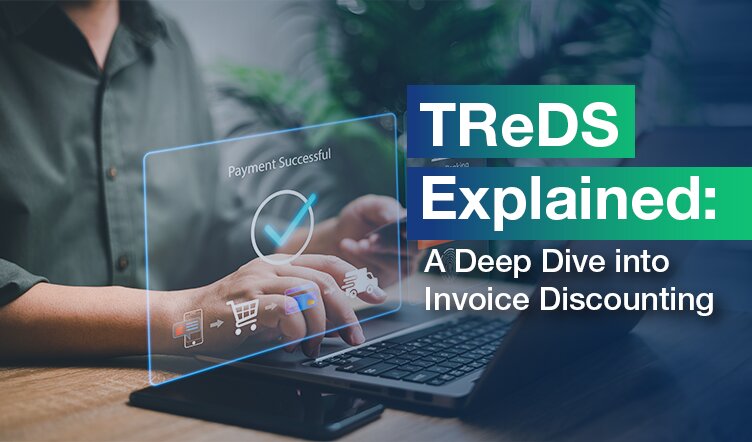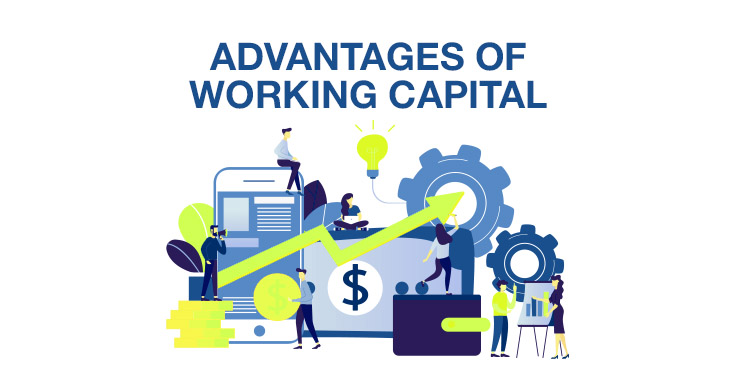Maintaining a healthy cash flow in the challenging environment of modern business is essential, especially for Micro, Small, and Medium Enterprises (MSMEs). This is a point where a transformative digital platform designed to streamline and improve the trade finance for MSMEs –Trade Receivables electronic Discounting System (TReDS) comes in. TReDS offers a transparent, efficient, and secure means for MSMEs to access timely funding by providing electronic discounts on trade receivables through an auction-based mechanism. This article examines the concepts of TReDS, detailing its participants, salient features, operational process, and the benefits of platforms like M1xchange TReDS.
What is TReDS?
Trade Receivables electronic Discounting System (TReDS) is a digital platform that serves as an easy transparent, auction-based factoring exchange for financing trade receivable of MSMEs through multiple financiers. TReDS helps in the improvement of cash flow, reduces payment delays and enhances working capital management by facilitating invoice discounting through multiple financiers at a competitive rate.
Who are the Participants in TReDS?
- Sellers of goods and services: Micro, Small & Medium Suppliers (MSMEs)
- Buyers: Large companies, corporations or businesses that buy MSME goods and services
- Financiers: Banks, and Non-Banking Financial Companies (NBFCs)
What are the Salient Features of TReDS?
The Trade Receivables Electronic Discounting System (TReDS) offers several key features aimed at simplifying and enhancing trade finance for Micro, Small, and Medium Enterprises (MSMEs):
- Enhanced Liquidity: MSMEs can get fundings against their receivables easily and improves the cash flow.
- Reduced Turnaround: TReDS helps in reducing the turnaround by providing the cash quicker.
- Multiple Financiers: The platform provides the funding from banks, NBFCs, enabling MSMEs to select better terms and rates of financing.
- No Paperwork: TReDS entirely functions online, eliminating the extensive use of paperwork and making it quicker and easier. MSMEs can upload their invoices, and financiers must bid on them electronically.
- Transparency: TReDS gives the facility to MSMEs & financiers with the information about the discounting process and the rates offered.
- Regulatory Compliance: TReDS platforms are regulated by RBI and set the standards for all who need to follow and protect the interests of each participant.
Above mentioned features all together streamlines the financing processes and makes it more efficient and accessible for MSMEs.
The Process of Invoice Discounting on TReDS
MSMEs can use the Trade Receivables electronic Discounting System (TReDS) as a platform to digitally discount their trade receivables. Let’s see how it works below:
- Submission of the Invoice: The MSME uploads the invoice on TReDS portal after providing goods or services to a buyer
- Invoice Acceptance: After uploading the bill, the buyer approves the invoice
- Multiple Financiers (bids for invoices): To release the funds, multiple banks and NBFCs bid to offer discounting rates
- Acceptance of Bid: After getting multiple bid options, MSMEs select the one which provides the best rate of financing
- Financing: Following the acceptance of a bid, the MSME receives the funds within 24 hours
- Settlement of Payment: The buyer pays the financier the invoice amount after 45 days
How to register on M1xchange TReDS platform?
It just takes 5 simple steps:
- Register on M1xchange
- Submit Video KYC
- Verifications and compliances check
- Credit limit sanctioned post successful registration
- Portal training and assistance
Benefits of M1xchange TReDS Platform
Designed considering the needs of all the stakeholders (MSMEs, corporates, and financiers), M1xchange TReDS offers a comprehensive suite of services that enhance liquidity, streamline operations, and provide unparalleled financial security.
- Ease of Use: M1xchange is a user-friendly platform designed for utilizing the TReDS service. It allows MSMEs to monitor real-time updates regarding receivables and transactions.
- Multiple Financiers: M1xchange gives MSMEs access to more than 60 financier partners to get best bids for receivable bills. This vast network of financiers allows MSMEs to choose from competitive rates and suitable terms, and maximizes their financial benefits.
- Payment Processing: MSMEs can receive finance within 24 hours. Businesses are guaranteed to have the liquidity required to sustain operations and seize expansion possibilities by the accelerated payment process.
- Data Security: All personal and critical information is securely protected with M1xchange. M1xchange employs advanced encryption and security protocols to protect your data from breach and cyber threats.
- 100% Assistance: If required the extensive assistance and portal training all are available. Our expert team guides you thoroughly step-by-step usage and how to use the features to its fullest.
- Collateral-Free Invoice Financing: M1xchange provides working capital to MSMEs without the typical collateral requirements by offering collateral-free invoice financing. This adaptable financing choice enables companies to increase cash flow and fund expansion plans without jeopardizing their assets.
- Simple Digital Onboarding: Businesses may easily begin using M1xchange thanks to our easy digital onboarding process. You may easily begin managing your receivables and have rapid access to the platform thanks to the straightforward registration and verification processes.
Conclusion
TReDS is a noteworthy development in trade and finance; it offers MSMEs a reliable way to increase working capital management, decrease payment delays, and boost liquidity. MSMEs that take advantage of M1xchange’s capabilities can benefit from streamlined operations, competitive financing rates, and all-encompassing support. In addition to democratizing financial access, TReDS has made the financial ecosystem more open, transparent, and effective for companies of all sizes. TReDS is an essential tool for ensuring the economic stability and expansion of MSMEs as they persistently confront the challenges of the contemporary marketplace.
Last modified: July 26, 2024














